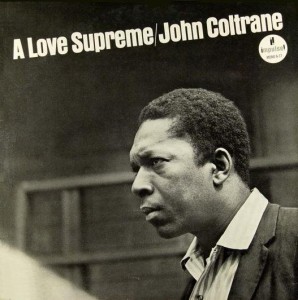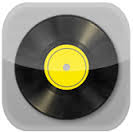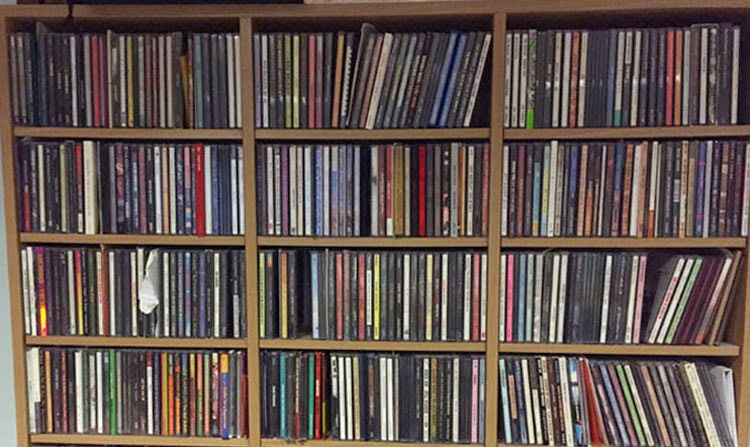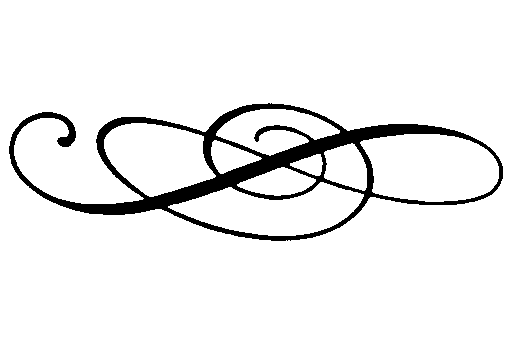

 John Coltrane
John Coltrane
| Release date | Label | Producer | Genre | Length | More info |
| 1965.02 | Impulse! | Bob Thiele | Avantgarde Jazz | 33:02 |  
 |
The album that God himself spent two and a half years trying to crack, so...
Background
There's this concept of "pretentiousness" which, in music, is typically applied to classic progressive rock and understood as "much too serious for its own good". Although to generalize this principle is ridiculous, there's no denying that, on the whole, new genres of internationally popular music that arose in the 20th century and generally stemmed from the US tended to be "un-pretentious" - music for popular entertainment, "guaranteed to raise a smile" even when singing about Biblical matters. Jazz, in particular, only really began to be associated with things vaguely above-and-outside pure entertainment in the post-war years, and even Charlie Parker and Miles Davis began as entertainers rather than self-conscious "artists". In the 1950s, jazz became universally cool (not quite the same as "cool jazz", but close enough) and more or less the default form of an intellectual's sonic delight, but it would hardly be an exaggeration to say that it was not yet "self-consciously spiritual", despite the early emergence of pioneering loony figures like Sun Ra. Even Ornette Coleman's early avantgarde experiments could hardly be called "serious" - adventurous, baffling, intellectually challenging, but hardly claiming to convey some sort of supernatural essence.
And it is interesting, really, that while we typically associate the heyday of jazz with the 1950s and the early 1960s, and commonly assume that rock had largely replaced jazz as music's most promising artistic engine circa 1965-66 (see the democratically generated Rate Your Music rankings for proof), yet that particular moment where jazz music became "pretentious" almost coincided with the same moment for rock, well, maybe preceding it by one or two years at most. The early 1960s did see some early examples of conceptualism, like Mingus' Black Saint And The Sinner Lady, but it does look like it really took Coltrane's spiritual enlightenment to properly push the gates open for all those people from Pharoah Sanders to John McLaughlin. What I'm talking about here is not the ability of jazz itself to cultivate and stimulate deep feeling, of course (to do that, you could very well begin with ʻSt. Louis Bluesʼ), but the creation of extended jazz pieces that lay an explicit claim to the pursuing of loftier goals - pieces that are the jazz equivalents of sacred music in the classical tradition. You do not have to be a genius to understand why this evolution was all but impossible in the pre-Rosa Parks era, but sometimes I still can't help but wonder that, perhaps, had an album like A Love Supreme come out not in 1965 but, say, in 1960, maybe our entire musical paradigm today would be seriously different. As it was, Coltrane had to carry out his revolution in the age of the Beatles and Bob Dylan, and his "God breathes through us so completely" got somewhat sidetracked in the face of "God only knows what I'd be without you".
Regardless, A Love Supreme gets plenty of reverence from serious music lovers, and, what's more, in this particular case I wouldn't even want to say anything in the vein of "this is one of Trane's more difficult albums, not a good introduction for the neophyte" - for what it's worth, A Love Supreme may be easier to get into than something like Giant Steps or My Favorite Things, precisely because, unlike those somewhat more dissipated and risk-taking experimental efforts, A Love Supreme is a fully pre-meditated and coherent spiritual statement - the culmination of an eight-year period of self-improvement that began with conventional talent (Blue Train), went through a long phase of "searching" (and even cost the man some fan appreciation at the turn of the decade) and, finally, ended with a decisive "finding". In a way, it almost seems like Coltrane's personal apology for his occasional triumphs of form over substance - "and now, ladies and gentlemen, it's been a long time but I have finally come up with a way to show you how true substance can be sincerely and logically imprinted in these strange new forms". And the rest is history.
Some basic factsBy jazz standards, the album was quite a bestseller (it is currently ranked #27 on the RIAA list and seems to be the highest "avantgarde" entry on the list, unless you want to also define the Mahavishnu Orchestra as "avantgarde"), and its critical status continues unabated into the present day. Upon its 50th birthday, the album was commemorated with a deluxe Complete Masters edition: lots of alternate takes from the December 9 session plus the complete December 10 "sextet session" plus a complete live performance of the suite at the Festival Mondial du Jazze (Antibes), July 26, 1965 (and this one, praise be to God, you can even see with your own eyes in pretty good quality). Obviously, you have to be a genuine admirer of the album to want to own the expanded version, but then again, 1965 was such a magic year for music that one might want to explore it to the last drop even out of sheer curiosity (said the homeless wino explaining why he was apprehended climbing out of the broken window with a copy of Bob Dylan: The Cutting Edge 1965-66 Deluxe 12-CD version stuffed in his underpants).
For the
defense
People who do not live and breathe the jazz idiom, like myself, tend to assess jazz albums not by their subtleties or technicalities, but, roughly speaking, by "how much unusually interesting stuff is going on". The basic structure of "2 minutes theme, 8 minutes solos, 1 minute recapitulation" can be very off-putting, particularly if you do not believe in the saxophone's saving grace as the default state of mind; and although A Love Supreme is not at all a complete departure from that formula, it introduces plenty of adjustments to set the stage for a "jazz album that even jazz haters could appreciate" event. First, there's the overall structure, with four distinctly different parts: ʻAcknowledgementʼ with its nagging four-note theme, eventually reprised by pseudo-choral vocals in a bizarre spiritual chant; ʻResolutionʼ, probably the most traditional of the four parts in terms of basic structure; ʻPursuanceʼ, the "individual members in the spotlight" segment; and ʻPsalmʼ, the ecstatic culmination with Coltrane's famous "sermon-of-the-sax" reinventing the very purpose of an instrumental solo part - or, perhaps, reinstating the original purpose is more like it. That makes a four-movement suite with four distinct, non-overlapping, logically sequenced mood swings, whereas on most "standard" jazz albums you're almost bound, sooner or later, to get tracks with completely similar moods and purposes that inavoidably contribute towards transforming those albums into background muzak.
Second, with the exception of ʻResolutionʼ, perhaps, all the other three sections have strong and "hookish" basic themes. On ʻAcknowledgementʼ, the odd four-note motif first appears played by the bass (not unusual), but is not reprised by the sax until much later in the piece (quite unusual), not to mention the addition of a multi-tracked Coltrane chanting it vocally (totally unusual). In between, we get an "acknowledging" solo of man's acceptance of God's grace, which my untrained ears, try as they might, cannot perceive as an expression of joy and gratitude, but there's no reason we shouldn' trust Trane himself on that one. The actual "click" for me is not the solo itself, but the way it emerges out of the bass theme and then eventually becomes the theme itself - there's some simple, but undecipherable mystery here, not to mention symbolic value: a burst of individual self-expression "framed" by a strictly disciplined religious ritual, or something to that effect. Even if you do not feel the deeply rooted spirituality, there's at least a bit of a puzzle that might keep you coming back from time to time.
ʻPursuanceʼ is far more conventional in form, what with all four quartet members getting solo spots and all, but it's got its own intrigue: the main theme gets introduced by the sax around 1:30 (and it's a fairly easily memorable theme, too) after an initial drum solo - and then it forgets to reappear, as you get a piano solo, a sax solo, another brief drum solo, and a lengthy bass solo, which... simply flows into the final movement, like they were Black Sabbath rather than a respectable jazz combo. And while we're at it, for my money, the best solos on the first three tracks are not even Coltrane's, but McCoy Tyner's - perfectly flowing fast-paced jazz piano solos on both ʻResolutionʼ and ʻPursuanceʼ with an Art Tatum-worthy right hand.
Yet on the whole, the first three tracks are essentially just a (necessary) prelude to ʻPsalmʼ, where the rhythm section switches to on-and-off mode, the piano bangs out deep-soul chords, and Coltrane delivers arguably the most important solo of his entire career - this one I can definitely feel, since it is indeed pretty much the sax equivalent of a passionate Mahalia Jackson vocal sermon. If you arm yourself with the text of the poem, it is actually possible to trace it as you go along, phrase by phrase, and although I have not done so for the entire duration of the piece, I'm pretty certain that the occasional high-pitched "climactic" resolutions of the solo are correlated with certain exclamatory parts of the text, which really brings a whole new meaning to the concept of a solo - in a way, helping the young initiates to get accustomed to what might at first seem like random incoherent noise (bringing to mind Bernstein's famous ways of "decoding" classical passages for youngsters by accompanying them with his own invented verbal "translations"). Of course, the solo is grand enough to be appreciated without the accompanying text, but for those who need help getting into it, verbal aid of such kind might be beneficial.
Ultimately, it is the conceptuality and logical perfection of the record that make it such an obvious standout in the catalog (for the record, I still remain somewhat baffled about why, out of all of Miles Davis' pre-electric recordings, Kind Of Blue is always picked out as the exceptional one - but I have no such troubles over A Love Supreme). There's two more "conventional", "business-like" movements, aptly titled ʻResolutionʼ (get to work!) and ʻPursuanceʼ (work it, work it!), lodged in between two more "spiritual", "introspective" movements - one opening, "dynamic" musical prayer, during which the protagonist dedicates himself to God, and one closing, "static" musical prayer, during which he pretty much becomes one with God. Once that structure is ingrained in your mind, getting more and more familiar with the record until you even begin to memorize the individual segments may be just a matter of time... or may be not?
For the prosecution
Well - no big surprise here - I am still not head-over-heels in love with this album (then again, I get bored with Mass In B Minor, too). For all of its innovation, and all of its importance, and all of its inescapable intrigue, there are still large chunks here that I'd have to see trimmed before acknowledging it as pure jazz perfection. Drum solos, for instance - although, fortunately, they are quite short. Jimmy Garrison's bass walk at the end of ʻPursuanceʼ also seems to occur in several circles, at least a couple of which are expendable. Coltrane's own soloing on ʻResolutionʼ does not do anything for me, unlike the more interestingly structured passages on ʻAcknowledgementʼ and the big deed on ʻPsalmʼ. And, maybe most important of all, I find the casual statement that all the other three members of the quartet are found here totally sharing Coltrane's dedication a little exaggerated - even Tyner, as cool as his solos are, is just playing solos; if you cut those out and listen to them out of context, you'll hardly ever guess that they have anything to do with "deep spirituality".
I think that the simplest way to illustrate that is to grab hold of the four-note mantra and put it under a microscope. It does sound like a mantra, like some para-Buddhist vocal/musical phrase the endless repetition of which may (or may not) offer a pathway to inner illumination if you're looking for one and can't find any other. But does it actually suggest an emotional idea of "a love supreme"? Not to me it doesn't - and, for that matter, the very idea of "a love supreme" is Christian rather than Buddhist, and should probably be expressed in notes more suggestive of "love" for a Western mind. This feeling is then easily extrapolated to the rest of the record, and explains why it doesn't work so well on a "gut level", at least if you agree to look in it for the precise message that is printed in the liner notes. It's all in need of mental processing and decoding, and that takes time and effort and guarantees no surefire results (although ʻPsalmʼ is definitely easier to assimilate than ʻAcknowledgementʼ). The intrigue and mystery are there from the start, but genuine spiritual illumination, not to mention one bathed in shiny positive vibrations, is much harder to come by. But it's worth trying.
Conclusion
As far as I'm concerned, it is useless to deny that A Love Supreme is an objective milestone - and that even if one does not consider it a masterpiece, it paved the way towards future masterpieces by other artists, in both jazz and rock worlds. It obviously defies convention, but it also compromises with it; and it obviously reflects certain deep feelings on the part of its creator, regardless of whether you think he was or was not able to properly convey them through musical means. Another obvious thing is that its creator had a poor way with words, and no matter how well the English text of ʻPsalmʼ translates into sax language, it will always read like Trane composed the sax text first, in his natural language, and then translated it into poorly mastered English - therefore, feel free to offer your own spiritual interpretation for that and all the other tracks instead of putting your full confidence into the English text. But this is also where we leave the domain of the obvious, and from that point on it's each person for him or herself. To me, it's essentially still too much of a puzzle to be cracked, and, frankly speaking, I might die a happier man if I do not manage to crack it in my lifetime.
| Melody | Voice | Mood | Production | Innovation/Influence | Where it belongs | RYM preference | |
 |
× |  |
 |
 |
 |
#17 (Apr 24, 2016) |

| Previous entry | Main page | Next entry |